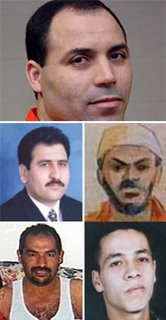The ruling last week by the Supreme Court of Canada that the antiterrorism provision allowing the authorities to detain indefinitely suspected terrorists was counter to the Canadian Charter of Rights and Freedoms — coming less than a month after Maher Arar received an official apology and a $11.5 million compensation from the Canadian government for its role in his deportation to Syria in 2002, where he was tortured — sends an encouraging signal to the world that Canada is in remission and that it recognizes, however belatedly, that some of the things it has done in the name of security have breached its age-old contract with its citizens.
At the heart of the issue are the Security Certificates which, under the Immigration and Refugee Protection Act (IRPA), are emitted against foreign nationals or permanent residents suspected of terrorism. The certificates allow for the detention, without a fair judicial process, of those individuals for extended periods of time, pending deportation. Ostensibly to protect intelligence sources (usually foreign) and methods of collection, the accused and their defense lawyers are given no access to the charges against them or the intelligence used to back those charges, making a proper defense in the court of law virtually impossible. It is a system that, not altogether unfairly, has prompted comparisons to the manner in which the US has treated its prisoners in Guantanamo Bay, Cuba.
 Eight cases are pending, and twenty have been resolved since 1991. Of the latter, 15 were deported. Of the 28 individuals, nineteen were of Arabic, Northern African or Persian origin. Unfortunately for the individuals whose cases are pending, the court suspended the ruling for a year to allow for a rewriting of the relevant parts of IRPA. The three most prominent cases — Hassan Almrei, Mohammed Zeki Mahjoub and Mahmoud Jaballah — this means a continuation of detentions that started in 2001, 2000 and 2001, respectively. Pictures: Mohamed Harkat (Algeria) released on bail in June 2006; clockwise from centre left: Hassan Almrei (Syria), Mohammed Mahjoub (Egypt), Mahmoud Jaballah (Egypt) and Adil Charkaoui (Morocco), freed on conditional release in February 2005.
Eight cases are pending, and twenty have been resolved since 1991. Of the latter, 15 were deported. Of the 28 individuals, nineteen were of Arabic, Northern African or Persian origin. Unfortunately for the individuals whose cases are pending, the court suspended the ruling for a year to allow for a rewriting of the relevant parts of IRPA. The three most prominent cases — Hassan Almrei, Mohammed Zeki Mahjoub and Mahmoud Jaballah — this means a continuation of detentions that started in 2001, 2000 and 2001, respectively. Pictures: Mohamed Harkat (Algeria) released on bail in June 2006; clockwise from centre left: Hassan Almrei (Syria), Mohammed Mahjoub (Egypt), Mahmoud Jaballah (Egypt) and Adil Charkaoui (Morocco), freed on conditional release in February 2005.Were those individuals Canadians by birth and — let us put it bluntly — Caucasian and non-Muslim, it is highly unlikely that the public, along with government, would allow their detention to continue for a single additional day without fair trial, let alone a year. But given the current state of affairs in the post-911 world and the racist slant against individuals of Middle Eastern or Persian origin, Almrei, Mahjoub and Jaballah will remain incarcerated without provisions for a fair trial with access to the charges against them. Moreover, the ruling was accompanied by a caveat stating that prolonged detention would be allowed if the new version of the law conforms with the Charter. In other words, despite the seemingly path-breaking ruling, there is no assurance that those three individuals — and others to come — will receive a fair trial, let alone be freed and compensated.
This cannot be allowed in a democracy based on a system of law. Whether they are citizens or not, individuals suspected of participation in terrorism-related activities — this alone casting a wide net encompassing all kinds of activities, both passive and active — deserve the full set of defense tools granted individuals suspected of other crimes. If found guilty in a fair trial, they should face the full consequences of their acts. But we cannot allow for the continuation of a system whereby suspects are detained for years without the means to defend themselves and cannot know the substance of the charges against them — especially when much of the intelligence used to send them to jail in the first place is, as most things intelligence-related, of questionable value, oftentimes based on innuendo, institutional sloppiness, false assumptions or outright racism.
Without provisions for a fair trial and unmitigated respect for the Charter of Rights and Freedoms, the Security Certificates are only a tool used by authorities to conceal less-than-airtight cases bent on ridding themselves of individuals who happen to be of the wrong ethnic or religious group.

No comments:
Post a Comment